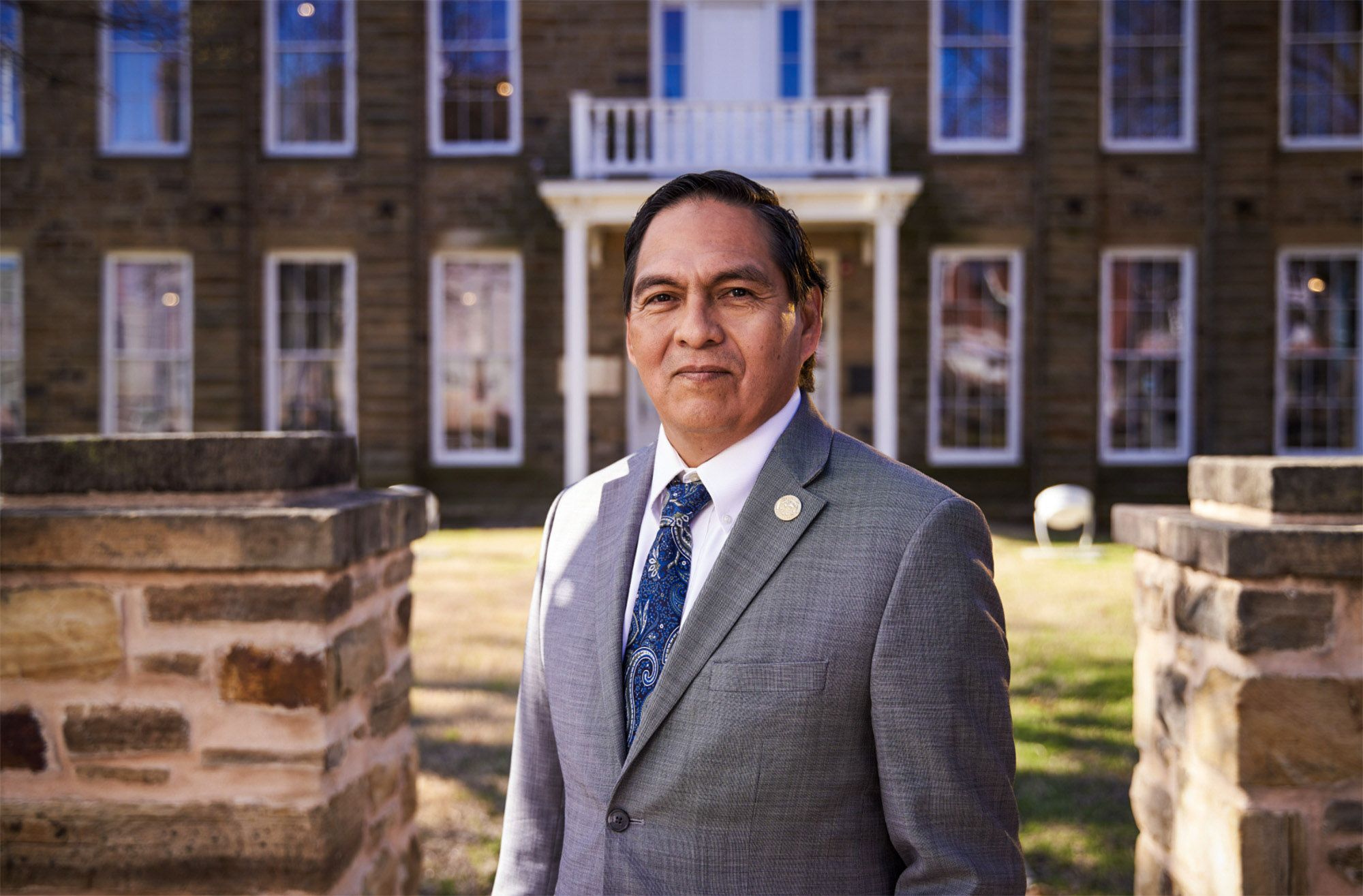Indianz.Com > News > Gaylord News: Supreme Court takes another look at Indian Country dispute

Oklahoma tribal sovereignty case gets Supreme Court review, not reversal
Monday, January 31, 2022
Gaylord News
The Supreme Court will revisit – but not overturn – its landmark 2020 decision that said a large part of eastern Oklahoma is still legally Muscogee (Creek) reservation land, a ruling that state officials claim has upended trial courts there.
The state filed more than 30 appeals this term asking the court to reverse its ruling in McGirt v. Oklahoma, which found that Muscogee Nation Reservation boundaries still included more than 3 million acres in northeastern Oklahoma, including Tulsa. That ruling meant many crimes committed on Muscogee land had to be tried in federal or tribal, but not state, courts.
The Supreme Court on Monday rejected 31 of those cases, but it did agree last Friday to hear one appeal, Oklahoma v. Castro-Huerta. The only question justices will consider in that case, however, is whether the state “has authority to prosecute non-Indians who commit crimes against Indians in Indian country.”
They will not take up the other question in Castro-Huerta that all the rejected appeals asked: Whether McGirt should be overruled.

Note: This story originally appeared on Cronkite News. It is published via a Creative Commons license. Cronkite News is produced by the Walter Cronkite School of Journalism and Mass Communication at Arizona State University.
Related Stories
Chuck Hoskin: Cherokee Nation deserves to be treated with respect (January 31, 2022)Supreme Court surprises by taking up contentious Indian law case (January 21, 2022)
Gaylord News: Indian Child Welfare Act in limbo amid high-stakes challenge (January 4, 2022)
Supreme Court takes up Indian law cases as tribes face new ‘unknown’ (October 19, 2021)
Chuck Hoskin: Protecting tribal sovereignty in Oklahoma (October 12, 2021)
Supreme Court returns to in-person arguments as justice tests positive for COVID-19 (October 1, 2021)
Indian Country Today: Alaska Native corporations finally receive COVID-19 funds (September 27, 2021)
Muscogee Nation: Tribal sovereignty is not a threat to Oklahoma (August 27, 2021)
Gaylord News: Funding bill passes without additional support for tribal justice systems (August 2, 2021)
Chuck Hoskin: Cherokee Nation celebrates sovereignty milestone (July 12, 2021)
Muscogee Nation proclaims Sovereignty Day on anniversary of historic Supreme Court ruling (July 9, 2021)
Nation’s highest court sides with Alaska Native corporations in COVID-19 dispute (June 25, 2021)
‘I wanted to cry’: Tribes welcome ruling in long-running health care dispute (June 21, 2021)
SCOTUSBlog: Supreme Court decision marks a first for tribal sovereignty (June 11, 2021)
Montana Free Press: Supreme Court supports tribal sovereignty in law enforcement case (June 11, 2021)
Cronkite News: Supreme Court finally ‘got it right’ on tribal sovereignty (June 4, 2021)
SCOTUSBlog: Supreme Court supports tribal sovereignty over non-Indians (June 3, 2021)
Supreme Court backs tribal sovereignty in law enforcement case (June 1, 2021)
Chuck Hoskin: Cherokee Nation seeks to strengthen sovereignty (May 17, 2021)
Indian Country nearly locked out of U.S. Supreme Court hearing (April 19, 2021)
Search
Filed Under
Tags
More Headlines
Chuck Hoskin: Cherokee Nation benefits from extension of health care credits
Native America Calling: Tribal museums reflect on tumultuous year, chart their next steps
Press Release: National Museum of the American Indian hosts Native art market
AUDIO: Sea Lion Predation in the Pacific Northwest
Native America Calling: Tribal colleges see an uncertain federal funding road ahead
Native America Calling: Short films taking on big stories
Native America Calling: Advocates push back against new obstacles to Missing and Murdered Indigenous Relatives momentum
Native America Calling: For all its promise, AI is a potential threat to culture
NAFOA: 5 Things You Need to Know this Week (November 24, 2025)
Chuck Hoskin: Cherokee Nation invests in rural transportation
Native America Calling: Native candidates make strides in local elections
National Congress of American Indians returns incumbents and welcomes newcomers to leadership
National Congress of American Indians chooses leadership at big convention
‘Not voting is still a vote’: Native turnout drops amid changes in political winds
Native America Calling: Indigenous voices speak up, but have little clout at COP30
More Headlines
Native America Calling: Tribal museums reflect on tumultuous year, chart their next steps
Press Release: National Museum of the American Indian hosts Native art market
AUDIO: Sea Lion Predation in the Pacific Northwest
Native America Calling: Tribal colleges see an uncertain federal funding road ahead
Native America Calling: Short films taking on big stories
Native America Calling: Advocates push back against new obstacles to Missing and Murdered Indigenous Relatives momentum
Native America Calling: For all its promise, AI is a potential threat to culture
NAFOA: 5 Things You Need to Know this Week (November 24, 2025)
Chuck Hoskin: Cherokee Nation invests in rural transportation
Native America Calling: Native candidates make strides in local elections
National Congress of American Indians returns incumbents and welcomes newcomers to leadership
National Congress of American Indians chooses leadership at big convention
‘Not voting is still a vote’: Native turnout drops amid changes in political winds
Native America Calling: Indigenous voices speak up, but have little clout at COP30
More Headlines
